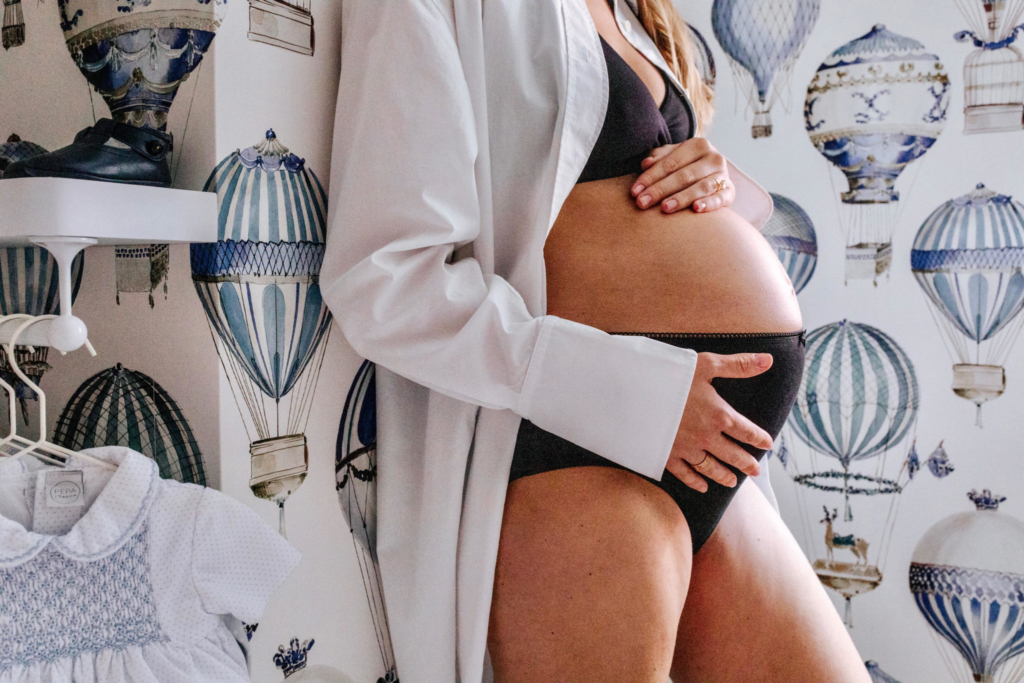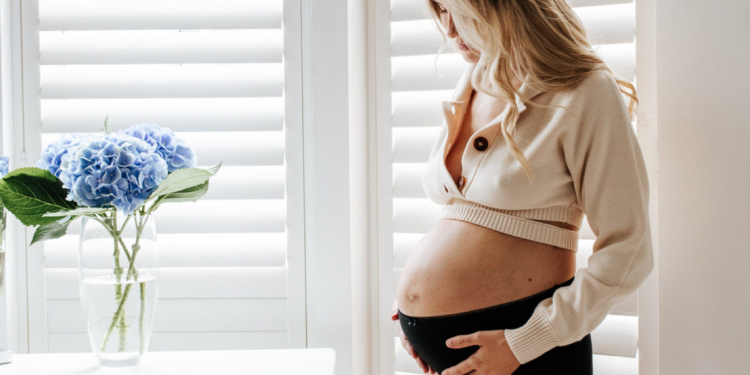
Dr. Jo Mennie
MBChB MSc MRCS PhD
PhD in Women’s Health
Dr. Jo Mennie has over 12 years of experience working as a plastic surgery doctor in the NHS and is a lead aesthetic practitioner at David Jack clinic. She has completed a PhD in Women’s Health and is passionate about integrating her knowledge in health and wellness into her client’s journey in the clinic. She offers non-invasive injectable facial treatments and skin consultations alongside her expertise in the latest technology-based body treatments. Dr Jo sees a wide range of clients and has expertise including fertility and pregnancy clients.
At what point should a bride start thinking about her fertility plan ahead of getting pregnant?
Egg heath is a key factor in not only fertility and conceiving but also for a healthy pregnancy and the early years of your baby’s development. Women are born with all their eggs, however they lay dormant in an inactive state. Three months prior to ovulation the eggs are ‘reactivated’ and go through the final steps of maturation. These three months are crucial for egg development and provide a great opportunity to maximise your egg health during this window.
How should you change your diet?
Diet plays a role in both egg and sperm health. Switching to organic produce makes a significant positive impact through minimising exposure to pesticides. Whilst a completely organic diet may be hard to put in place, there are a few key ingredients where you can focus on. This would be meat, fish, and what the Environmental Working group calls the ‘dirty dozen’ – the 12 fruit and vegetables that test highest for retained pesticides.
Try and eat the majority of your meals from food prepared in your kitchen and limit takeaways. This insures both the ingredients and the cooking process are the highest quality. Lastly try and increase healthy fats in your diet such as olive oil, nuts, seeds and avocado, and limit highly processed food and food and drinks with sweeteners.

What supplements should a bride think about taking?
Ensuring enough folate is a key component in preparing for getting pregnant. Folate plays a critical role in detoxification in the body and in making new DNA and proteins. It is also importantly widely understood that supplementing with folate reduces the risk of birth defects. Supplementing with methylfolate, the natural form of folate, is advised at least 3 months prior to conception. This can either be found in your prenatal or taken in addition to your daily prenatal.
Low vitamin D has been linked to infertility and increased miscarriage rates. It is worthwhile having your vitamin D level tested and supplementing with additional vitamin D if levels are on the low side. For fertility and becoming pregnant, the latest research show optimal vitamin D levels are likely at least 40ng/mL (100nmol/L), which is a higher level than general bone health levels. Unfortunately, not all supplements are created equal. Look for reputable brands that disclose manufacturing details on their website and give information on their heavy metal testing policies.
What supplements can the groom take to help?
Supplements to improve sperm quality should not be overlooked. Recent studies have shown that in 50% of cases where couple had difficulties getting pregnant it was related to male infertility. Further still, by improving sperm quality you can reduce the risk of miscarriage and improve baby brain development. A daily supplement that contains vitamins and antioxidants is the best first step. To help improve sperm quality further it would be recommended to also supplement with Coenzyme Q10 at 200mg/day, a key factor in optimising energy production and activating antioxidants.
How should a bride/groom manage exercise or dieting on the lead up to the big day?
For those thinking about starting a family soon after the wedding, it is never too early to start introducing healthy diet and exercise habits as a couple that you can maintain throughout the pregnancy journey and beyond. Exercise 2- 3 times a week, and as much nutritious home cooking with lots of antioxidants will set you up for good habits in married life. Often meal planning for the week can help avoid too many unhealthy choices. A new cookbook you can try together is a good option for getting some inspiration and joy from cooking together. Quick fix diets and gruelling exercise routines are likely unsustainable and set unrealistic expectations in the lead up to the big day.
How does alcohol play a part in preparing your body for getting pregnant?
In a study of women conceiving naturally good evidence has shown that consuming less than 14 units per week does not have an impact on future fertility. However, for those women undergoing IVF treatments the maximum number of advisable units would drop to 4 units a week, above this has been shown to reduce the chances of a getting pregnant successfully in this group. It is obviously safer to be cautious and keep alcohol minimal while trying to conceive – mainly as there may be a period of time you do not know you are pregnant. If you are tracking ovulation and are in your two-week wait period then this would be the time to abstain. Once you confirm you are pregnant then alcohol should be avoided.
For men, limiting alcohol is also advised. Alcohol has been shown to reduce sperm count and sperm motility, and in the IVF context also reduce rates of fertilisation and increase rates of miscarriage. As to how much alcohol you should limit to, the research is unclear on that, but I would advise to follow the guide for women depending on whether conceiving naturally of through IVF. Sperm production takes around 2 months so that would be the amount of time prior to conception needed.

Tell us how your environment can have an impact on conceiving?
Certain chemicals in everyday life have been shown to impact on fertility and future health. Fortunately, there is a wealth of research emerging to help guide us and there are steps you can take to limit environmental toxins. The main step would be to try and reduce exposure to BPA (bisphenol B), a compound found in numerous plastic items shown to impact egg and sperm quality and interfere with hormonal functioning.
It would be difficult to avoid BPA altogether but reducing exposure in more high-risk areas is feasible. BPA is most likely to enter the body when the plastic item is used to store or process acidic or hot foods. Replacing plastic kitchen items and water bottles with glass, silicone or stainless steel is a really positive heath change. Avoiding tinned food, especially acidic items like tomatoes, and washing any plastic items by hand will also help limit BPA exposure.
Other steps that can help fertility involve reducing exposure to phthalate chemicals. These are found in fragranced products so swapping to fragrance free soap, laundry detergent, cleaning products and skin care. Home cooking as suggested above is also one of the best ways to reduce phthalate exposure as fast food is often prepared in environments with high levels.
What skincare prep can brides or grooms upgrade to ensure they continue a brilliant but pregnancy safe skincare routine?
Firstly, there are a number of ingredients to avoid when trying to conceive and during pregnancy. These include retinoids, skin lightening agents such as hydroquinine, and products containing CBD. Skincare has evolved in recent years and there are fortunately a number of well formulated ingredients that, with careful layering, can treat common skin concerns whilst remaining pregnancy safe. It would be ideal to switch your routine to a pregnancy safe routine prior to pregnancy.
During pregnancy there are significant hormonal and immune changes which may result in some of your pre-pregnancy products not working as well as they used to. I would advise seeking help from a doctor specialised in pregnancy skincare who can help advise you on a safe and effective routine tailored to your needs during this time. In the lead up to the big day the main focus would be to work on exfoliation, high strength vitamin C, and peptide moisturisers to ensure breakouts and pigmentation are kept at bay, and a glowy texture. A tailored skincare routine alongside in clinic treatments work well to achieve your skincare goals.

What advice do you have for LGBTQ+ communities looking for support & guidance?
For those that are following a pathway of assisted reproductive technology it is worthwhile seeking professional advice from a fertility coach or nutritional therapist specialised in fertility. The emotional and financial implications of these pathways can be challenging and having as much help and support on your journey can make such a difference.
How do I book in?
For those wanting to book in for a fertility or pregnancy skincare and wellness consultation with Dr Jo Mennie contact David Jack Clinic on 020 7589 6309. Dr Mennie offers consultations at both the Harley Street Clinic in Marylebone, and the Ebury Street Practice in Belgravia.
Related Article: What To Wear To a Wedding When You’re Pregnant
Article by Dr Jo Mennie
Photo of Jessica Zownir
Photo by Pepita Fernandez Photography






